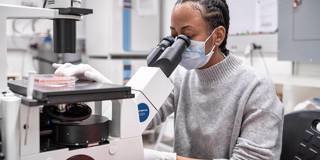
Tackling America’s Racial Disparities in Science
Scientific advances are helping America and the world to tackle major global challenges, including the ongoing COVID-19 pandemic and climate change. By empowering members of underrepresented groups to capitalize on their talents, advances toward racial and gender parity in science would accelerate the pace of progress, benefiting everyone.
URBANA, ILLINOIS – Kamala Harris made history earlier this month by becoming the first woman, and the first black person and South Asian American, to serve as vice president of the United States. But despite these occasional big wins, America is far from achieving racial and gender parity in many fields, from government to science, the field in which I work.